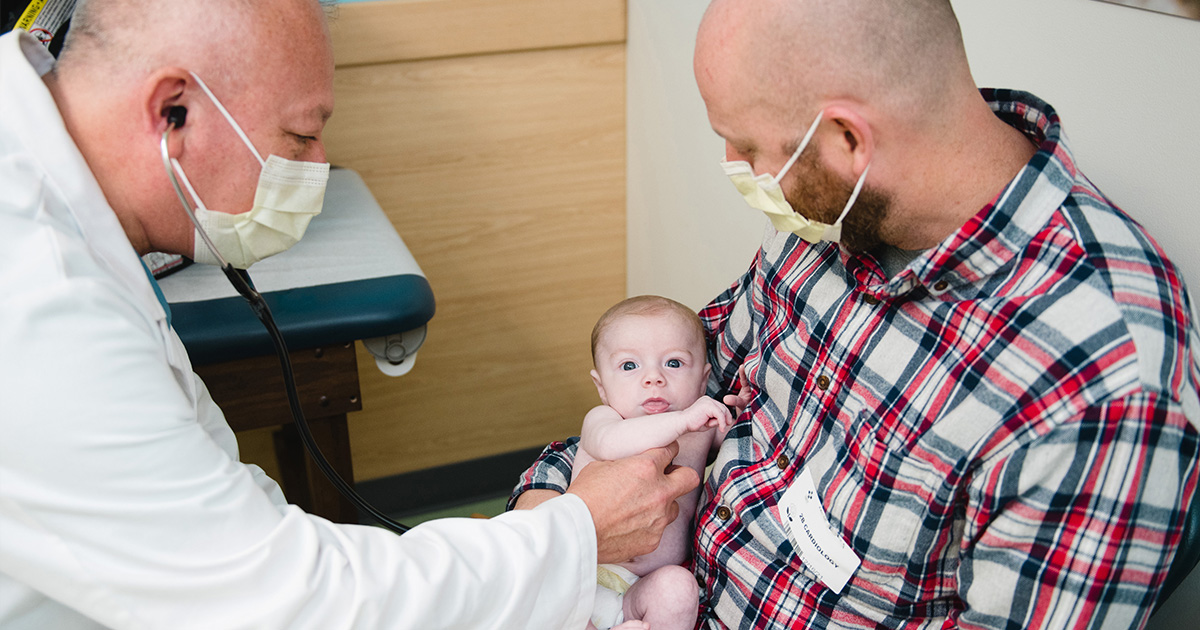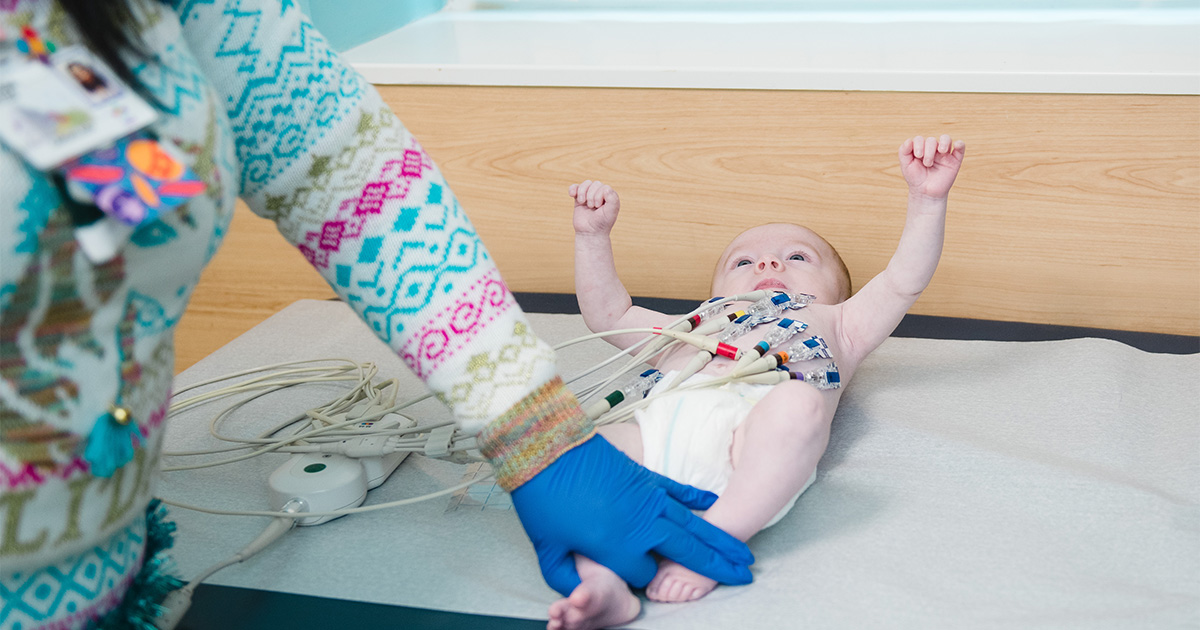New possibilities for patients
Because the left side of Ellis’ heart was underdeveloped, his mitral valve was too small. With his other heart issues repaired, his care team waited, and watched, to see if that valve would function well enough on its own. Unfortunately, it didn’t. Ellis still needed a ventilator to breathe, and he wasn’t gaining weight.
Connecticut Children’s doctors gathered with Alyse and Mike, and told them about a tiny device that could make a big difference. They could replace Ellis’ abnormal valve, they explained, with a mechanical one – the smallest model available, created especially for newborns and infants. At 15 millimeters wide, it’s only about the size of a dime. But it’s creating a whole new world of possibilities for patients like Ellis.
“This is an example of the highest complexity of patients we care for at Connecticut Children’s, and are able to successfully perform cardiac surgeries on,” says Dr. Mello.
When Ellis was 2 months old, he had his second open-heart surgery. Dr. Mello successfully replaced his mitral valve with the smallest pediatric mechanical heart valve in the world.
> Related: First in the World: Haresh’s Story
“Just 20 minutes away, the greatest children’s hospital”
“I can’t imagine not having good people to go through this with,” says Alyse. “We’re so grateful that, just 20 minutes away, we have the greatest children’s hospital.”
These days the family, who lives in Cromwell, follows up regularly with Dr. Mesia, including weekly phone check-ins and regular MyChart messaging.
When Ellis is a toddler, and likely again when he’s a teenager, Connecticut Children’s cardiac surgeons will need to swap out his mechanical valve for bigger versions. Even when he’s an adult, he’ll continue to receive specialized heart care from Connecticut Children’s through our nationally-accredited Adult Congenital Heart Disease program, the only one in the state of Connecticut.
But all of that is down the road. As for today? Ellis is 4 months old, willful and bright, the picture of health. He’s proof that, even for babies born with serious heart problems, the chance to thrive is no longer beyond imagination.
No surprise: He also seems to be a natural trailblazer.
“He’s doing amazing. He’s chatty all the time,” says Alyse. “We found out very quickly that he’s in charge.”



